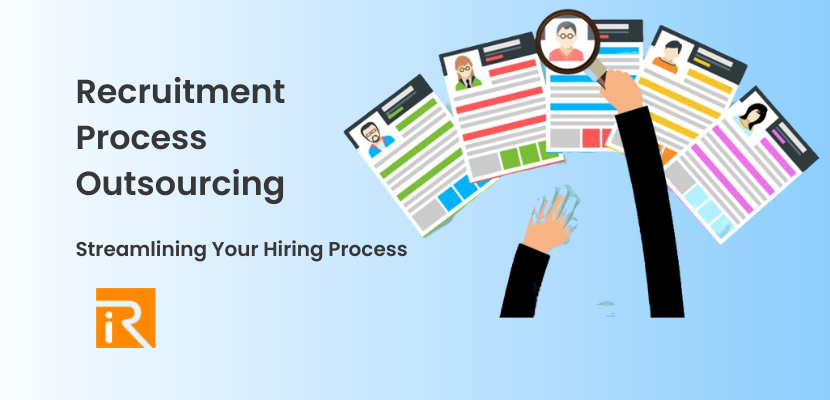
At our company, we understand how challenging it can be to find the right candidates for open positions. Recruitment is a time-consuming and resource-intensive process that can drain your company’s valuable time and resources. That’s where Recruitment Process Outsourcing (RPO) comes in. In this article, we’ll explore what RPO is, how it works, and the benefits it can bring to your organization.
What is Recruitment Process Outsourcing (RPO)?
Recruitment Process Outsourcing (RPO) is a strategic business approach that entails hiring an external provider to handle some or all aspects of your recruitment process. By partnering with an RPO provider, you can leverage their expertise and industry knowledge to identify, attract, screen, and select top talent for your organization.
An RPO provider typically has a team of experienced recruiters who are well-versed in the latest hiring trends, techniques, and technologies. They work closely with your company’s HR team to understand your unique staffing needs, and develop a tailored approach to meet those requirements.
One of the key advantages of RPO is that it allows you to focus on other important aspects of your business while the provider handles the recruitment process. This can help to free up your internal HR team to concentrate on employee retention, training, and development.
RPO can also be more cost-effective than traditional recruitment methods, as you only pay for the services you need. Moreover, by outsourcing your recruitment process, you gain access to a wider pool of candidates and increase your chances of finding the right fit for your organization.
The RPO provider’s recruiters use a variety of techniques to attract and screen candidates, including job postings, social media outreach, and employee referrals. They may also conduct initial screenings and interviews to ensure that candidates meet your company’s requirements and culture.
Overall, RPO can be an effective way to streamline your recruitment process and find the best candidates for your open positions. By partnering with an RPO provider, you can save time and money, while accessing a pool of experienced recruiters with industry-specific expertise.
How Does RPO Work?
Recruitment Process Outsourcing (RPO) works by partnering with an external provider who takes on responsibility for some or all aspects of your recruitment process. The RPO provider typically follows a structured process that involves several stages, including sourcing, screening, interviewing, and hiring.
When you work with an RPO provider, they will work closely with you to understand your company’s unique staffing needs, including the job requirements, skills, and experience necessary for each position. Based on this information, the RPO provider will develop a tailored approach to attract, screen, and select top talent for your organization.
The first stage of the RPO process is sourcing, where the provider uses a variety of techniques to identify potential candidates, including job postings, social media outreach, and employee referrals. Once potential candidates have been identified, the RPO provider conducts initial screenings and interviews to determine if they meet your company’s requirements and culture.
After the screening and interviewing stages, the RPO provider presents the most qualified candidates to your internal HR team for further consideration. Depending on the level of service you require, the RPO provider may also assist with negotiating salaries and finalizing job offers.
Throughout the entire process, your RPO provider will keep you informed of their progress, provide regular updates, and seek your feedback. By partnering with an RPO provider, you can leverage their expertise and industry knowledge to streamline your recruitment process, save time and money, and find the best candidates for your open positions.
The Benefits of RPO
There are several benefits of partnering with an RPO provider. Here are some of the key advantages:
Time-saving
Outsourcing your recruitment process to an RPO provider can be an incredibly time-saving business strategy. By letting an external provider take on the responsibility of the recruitment process, your internal HR team can free up their valuable time and resources to focus on other critical tasks, such as employee retention and development. This can be particularly beneficial if your internal HR team is already overloaded with other responsibilities.
With an RPO provider handling your recruitment process, you can also ensure that your recruitment efforts are optimized and streamlined, as the external provider will have the expertise and resources to attract, screen, and select top talent for your organization. This can reduce the time it takes to fill open positions, allowing you to be more efficient in your recruitment efforts.
Moreover, by partnering with an RPO provider, you can benefit from their experience and industry-specific knowledge, which can help you to stay up-to-date with the latest recruitment trends and techniques. This can also save your internal HR team time and resources that would have been spent on staying informed about these trends.
Overall, outsourcing your recruitment process to an RPO provider can be a smart and strategic way to save time and resources while ensuring that your organization attracts and retains the best talent. By freeing up your internal HR team’s time, you can focus on other important tasks that can help your organization grow and succeed in the long term.
Cost-effective
RPO, or Recruitment Process Outsourcing, has the advantage of being cost-effective when compared to traditional recruitment methods. This is because with RPO, you are only required to pay for the specific services that you need, rather than the entire recruitment process. This results in significant cost savings for businesses, as they are not burdened with the costs of hiring and training in-house recruitment teams or paying for job board postings and advertising.
Furthermore, RPO providers can leverage their expertise and economies of scale to optimize the recruitment process and reduce overall recruitment costs. By outsourcing the recruitment process, companies can save money on overhead expenses such as office space, technology, and employee benefits. These savings can then be invested in other areas of the business, such as employee development or expanding operations.
In conclusion, RPO can be an effective way for companies to reduce recruitment costs and improve efficiency. By partnering with an RPO provider, businesses can benefit from cost savings, streamlined processes, and access to industry expertise.
Access to expertise
RPO providers offer a valuable advantage to companies by granting access to a pool of experienced recruiters who possess industry-specific knowledge and expertise. These recruiters are well-versed in the nuances of the job market and have extensive experience in sourcing, screening, and hiring top talent.
With their in-depth understanding of various industries, RPO providers can offer tailored recruitment solutions that are designed to meet the unique needs of each client. They can also provide valuable insights into the latest industry trends, salary benchmarks, and candidate preferences, helping clients make informed hiring decisions.
Additionally, RPO providers can offer a range of value-added services such as employer branding, talent mapping, and candidate engagement. These services can help companies build a strong employer brand, attract top talent, and maintain a positive candidate experience throughout the recruitment process.
In summary, RPO providers can provide companies with access to a wealth of expertise and industry-specific knowledge that can help them recruit the best candidates for their needs. By leveraging the expertise of RPO providers, companies can streamline their recruitment process, reduce time-to-hire, and gain a competitive edge in the job market.
Scalability
One of the key advantages of Recruitment Process Outsourcing (RPO) is its scalability. RPO offers the flexibility to scale up or down recruitment services according to a company’s changing needs, enabling businesses to adapt quickly to fluctuations in demand.
For instance, during peak recruitment periods, a company may require more resources to manage the hiring process. RPO providers can easily accommodate such needs by deploying additional recruiters to manage the increased workload. Similarly, during slower periods, companies can scale down their recruitment services to save costs.
Moreover, RPO providers can help companies manage seasonal or project-based hiring needs by providing on-demand recruitment services. This means that businesses can quickly ramp up their recruitment efforts to meet project deadlines or seasonal demands, without having to invest in additional recruitment resources.
The scalability of RPO makes it an attractive option for businesses of all sizes. It allows companies to adjust their recruitment efforts in real-time to meet changing demand, while also providing the flexibility to manage seasonal or project-based hiring needs. By leveraging the scalability of RPO, companies can achieve greater agility and efficiency in their recruitment process.
Improved candidate experience
When it comes to recruitment, a positive candidate experience is essential. Not only does it help attract top talent, but it also enhances an organization’s employer brand. Recruitment Process Outsourcing (RPO) providers have the resources and expertise to provide a positive candidate experience throughout the recruitment process.
RPO providers employ skilled recruiters who are trained to engage with candidates and provide them with a personalized experience. They have access to advanced technology, such as applicant tracking systems, that enable them to manage candidate communications and keep candidates informed about the status of their application.
Additionally, RPO providers can help companies to develop and implement a candidate-centric recruitment process. This means focusing on providing a smooth and transparent recruitment journey for candidates, from the application stage to the final hiring decision. RPO providers can also conduct candidate surveys and analyze feedback to continuously improve the candidate experience.
By delivering a positive candidate experience, RPO providers can help enhance an organization’s employer brand. Candidates who have a positive experience are more likely to share their experience with others, which can help attract top talent to the organization.
RPO providers can help companies deliver a positive candidate experience, which is crucial for attracting and retaining top talent. By leveraging their resources and expertise, RPO providers can enhance an organization’s employer brand and help to establish a reputation as an employer of choice.
Disadvantages of RPO
Loss of control
When an organization decides to outsource its recruitment activities, it is important to consider the potential loss of control over the recruitment process. RPO providers use their own recruitment processes, which may not be aligned with the organization’s recruitment strategy or values. This can create a challenge for the organization, as it may not have as much control over the recruitment process as it would if it were handled in-house.
However, it is important to note that the loss of control can also be an advantage in certain situations. For example, RPO providers have access to a wide range of recruitment tools and technologies that can help them identify and attract top talent. They also have deep industry knowledge and expertise, which can be invaluable when it comes to identifying and hiring candidates with specialized skills or experience.
To mitigate the risk of losing control, organizations should establish clear communication channels with their RPO provider and set clear expectations about the recruitment process. This includes outlining specific requirements for job postings, candidate profiles, and interview processes. It is also important to establish regular check-ins and performance metrics to ensure that the RPO provider is meeting the organization’s needs and expectations.
Ultimately, the decision to outsource recruitment activities to an RPO provider should be based on a careful analysis of the organization’s needs, resources, and goals. While the loss of control over the recruitment process is a valid concern, the benefits of leveraging the expertise and resources of an RPO provider can outweigh this risk in many cases.
While outsourcing recruitment activities to an RPO provider may result in a loss of control over the recruitment process, it can also provide access to valuable expertise, resources, and technologies. To maximize the benefits and minimize the risks, organizations should establish clear communication channels, set clear expectations, and regularly evaluate the performance of their RPO provider.
Quality of candidates
Another potential concern when outsourcing recruitment activities to an RPO provider is the quality of candidates provided. While RPO providers can offer a range of benefits, including increased efficiency and reduced costs, they may prioritize filling vacancies quickly over finding the best candidate for the job.
This can be a problem for organizations that are looking to hire candidates with specific skills or experience. RPO providers may not have the same level of understanding of the organization’s needs and values as an internal HR team would, which can result in a mismatch between the candidate and the role.
To mitigate this risk, organizations should work closely with their RPO provider to establish clear expectations and requirements for the recruitment process. This includes providing detailed job descriptions, candidate profiles, and any other relevant information that will help the RPO provider identify the right candidates.
It is also important to establish clear communication channels and feedback mechanisms to ensure that the RPO provider is meeting the organization’s needs and expectations. Regular check-ins and performance metrics can help organizations evaluate the quality of the candidates provided by the RPO provider and make adjustments as needed.
While the quality of candidates provided by RPO providers can be a concern, it is possible to mitigate this risk by establishing clear expectations and communication channels with the RPO provider. By working closely together, organizations and RPO providers can identify top talent that meets the organization’s needs and values.
Cultural fit
Another potential challenge when outsourcing recruitment activities to an RPO provider is finding candidates who fit the organization’s culture. RPO providers may not have the same level of understanding of the organization’s culture or work environment as an internal HR team would. This can make it difficult for them to identify candidates who will be a good fit for the organization.
Culture fit is an important factor in ensuring that new hires are successful and productive in their roles. When new hires fit in with the organization’s culture, they are more likely to be engaged and committed to their work, which can have a positive impact on the organization’s performance.
To address this challenge, organizations should work closely with their RPO provider to ensure that they understand the organization’s culture and values. This includes providing information about the organization’s mission, vision, and core values, as well as details about the work environment and team dynamics.
It is also important to provide clear guidance on what constitutes a good cultural fit for the organization. This can include specific behaviors, attitudes, or values that are important to the organization.
Regular communication and feedback between the organization and the RPO provider can also help to ensure that the RPO provider is identifying candidates who are a good cultural fit. This can include regular check-ins and debriefings after interviews to discuss the candidate’s fit with the organization’s culture.
While RPO providers may not have the same level of understanding of an organization’s culture as an internal HR team would, it is possible to overcome this challenge by providing clear guidance and regular feedback. By working closely together, organizations and RPO providers can identify candidates who are a good fit for the organization’s culture and values.
Integration issues
Another challenge that organizations may face when outsourcing recruitment activities to an RPO provider is integration issues. RPO providers may not be familiar with the organization’s internal processes and systems, which can make it difficult for them to seamlessly integrate into the organization’s workflow.
For example, RPO providers may use different applicant tracking systems or communication platforms than the organization, which can lead to confusion and inefficiencies in the recruitment process. This can result in delays in hiring or missed opportunities to identify top talent.
To overcome integration issues, organizations should establish clear communication channels with their RPO provider and provide access to any relevant systems or platforms. This includes providing access to the organization’s applicant tracking system and any other tools or platforms that are used to manage the recruitment process.
It is also important to establish clear roles and responsibilities for both the organization and the RPO provider. This can include establishing guidelines for how communication and information will be shared, as well as who will be responsible for each stage of the recruitment process.
Regular communication and feedback can also help to ensure that any integration issues are addressed in a timely manner. This can include regular check-ins and performance metrics to evaluate the effectiveness of the recruitment process and identify areas for improvement.
While integration issues can be a challenge when outsourcing recruitment activities to an RPO provider, it is possible to overcome these challenges by establishing clear communication channels and roles and responsibilities. By working closely together, organizations and RPO providers can seamlessly integrate into the recruitment process and identify top talent for the organization.
RPO implementation process
The RPO implementation process involves several steps.
Identification of Needs: This step involves identifying the recruitment needs of the organization. The organization should evaluate the scope of the project and determine the specific roles and positions that require recruitment support. It’s important to understand the company’s recruitment challenges, including areas where they need additional support and areas where they’re currently successful.
Vendor Selection: The next step is to select the RPO vendor that best meets the organization’s needs. This can involve researching potential vendors and evaluating their experience and capabilities. It’s important to select a vendor that aligns with the company’s values and culture and has a proven track record of success in similar recruitment projects.
Contract Negotiation: Once a vendor is selected, the next step is to negotiate a contract that outlines the scope of work, deliverables, timelines, pricing, and other terms and conditions. It’s important to ensure that the contract protects the interests of both parties and is aligned with the goals of the project.
Integration Planning: After the contract is signed, the RPO vendor will need to integrate with the organization’s existing recruitment processes and systems. This involves developing a detailed plan for how the vendor will work with the organization’s internal recruitment team and how the recruitment process will be managed going forward.
Service Delivery: With the plan in place, the RPO vendor can begin delivering recruitment services to the organization. This can include sourcing and screening candidates, managing the recruitment process, and providing reporting and analytics on recruitment performance.
Performance Management: The final step in the RPO implementation process is to manage and measure the performance of the RPO vendor. This involves setting performance metrics and KPIs and regularly reviewing and analyzing recruitment data to ensure that the RPO is delivering on its promises and meeting the needs of the organization. Any issues or areas for improvement should be addressed promptly to ensure the success of the project.
RPO models
RPO (Recruitment Process Outsourcing) can be delivered in various models. Here are the three primary RPO models:
Onsite RPO
In this model, the RPO provider places a team of recruiters onsite at the client’s location. This model allows for close collaboration between the RPO team and the client’s HR team, and can help build a better understanding of the client’s culture and recruitment needs. Onsite RPOs can also provide faster response times and more efficient communication, as the team is located within the client’s premises.
Offsite RPO
In this model, the RPO provider delivers recruitment services from a remote location. This can be more cost-effective for the client, as there are no costs associated with providing office space and equipment for the RPO team. However, this model may require more communication and collaboration efforts between the client and the RPO team, as they may not have as much direct access to the client’s HR team.
Hybrid RPO
This model combines elements of both onsite and offsite RPO models. In a hybrid RPO, the RPO team may have a presence on the client’s premises for certain periods of time or for specific projects, while also delivering recruitment services remotely. This model can provide the benefits of both onsite and offsite RPO models, such as close collaboration and cost-effectiveness, respectively.
Each RPO model has its own advantages and disadvantages, and the choice of the appropriate model will depend on the client’s specific recruitment needs and preferences.
Factors to consider when selecting an RPO provider
When selecting an RPO (Recruitment Process Outsourcing) provider, there are several important factors to consider:
- Industry expertise: The RPO provider should have knowledge and experience in the specific industry that the client operates in. This will help ensure that the RPO provider can source and screen candidates with the appropriate skills and qualifications and understand the unique recruitment challenges of the industry.
- Recruitment approach: The RPO provider should have a recruitment approach that aligns with the client’s values and culture. This will help ensure that the RPO provider can attract and retain candidates who fit well with the client’s organization.
- Technological capabilities: The RPO provider should have up-to-date technological capabilities that can help streamline the recruitment process, such as applicant tracking systems, video interviewing platforms, and online candidate assessments.
- Service-level agreements: The RPO provider should have clearly defined service-level agreements that outline the scope of work, deliverables, timelines, pricing, and other terms and conditions. This will help ensure that both parties have a clear understanding of what is expected and will help mitigate any potential conflicts.
- Cost: The cost of the RPO services should be considered, but it should not be the only factor in the decision-making process. The RPO provider should provide a pricing model that aligns with the client’s budget and can deliver the required recruitment services within that budget.
By considering these factors when selecting an RPO provider, the client can help ensure that they choose a provider that can deliver the required recruitment services effectively and efficiently, and help the organization achieve its recruitment goals.
Conclusion
- Summary of key points:
In summary, Recruitment Process Outsourcing (RPO) is a strategic approach to recruitment that can help organizations improve their recruitment processes, reduce costs, and attract and retain top talent. The RPO implementation process involves identification of needs, vendor selection, contract negotiation, integration planning, service delivery, and performance management. There are also different RPO models to choose from, such as onsite RPO, offsite RPO, and hybrid RPO. When selecting an RPO provider, organizations should consider factors such as industry expertise, recruitment approach, technological capabilities, service-level agreements, and cost.
- The future of RPO:
The future of RPO looks promising, as more organizations are recognizing the benefits of outsourcing their recruitment processes to specialized providers. With the increasing adoption of technology such as artificial intelligence and automation, RPO providers can leverage these tools to deliver faster, more efficient, and more accurate recruitment services. Additionally, as the global workforce becomes more diverse and dispersed, RPO providers can help organizations navigate the complexities of recruiting talent from different regions and cultures.
- Final thoughts:
Overall, RPO can be a valuable tool for organizations looking to improve their recruitment processes and attract and retain top talent. By carefully selecting an RPO provider that aligns with the organization’s values, culture, and recruitment needs, organizations can reap the benefits of a more efficient and effective recruitment process. As the recruitment landscape continues to evolve, RPO providers will need to adapt and innovate to remain competitive and deliver value to their clients.


























